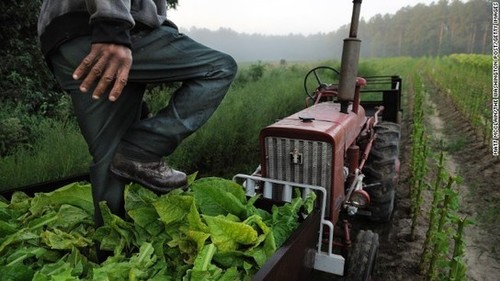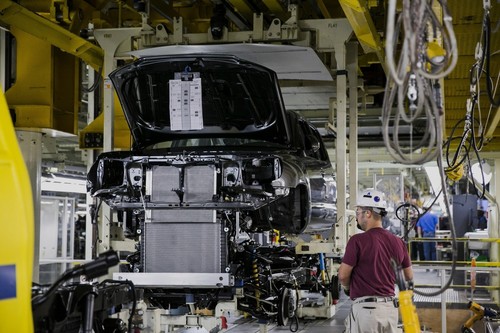(CNN) — Children can’t light up, but there are some who suffer the effects of nicotine exposure as they labor in U.S. tobacco fields.
There is not an exact figure for how many children work in America’s tobacco fields, but Human Rights Watch interviewed nearly 150 for a new report on the dangers these workers face.
“I would barely eat anything because I wouldn’t get hungry,” one child worker, Elena G., 13, told the human rights group. “Sometimes I felt like I needed to throw up. … I felt like I was going to faint. I would stop and just hold myself up with the tobacco plant.”
Nearly 75% of the children interviewed reported similar symptoms — nausea, vomiting, loss of appetite, headaches, dizziness, irritation and difficulty breathing. These are symptoms of acute nicotine poisoning, Human Rights Watch said.
And nicotine is not the only danger.
Exposure to pesticides from adjacent fields and accidents with sharp tools are also common, the report said.
“Once they sprayed where we were working. We were cutting the flower and the spray was right next to us in the part of the fields we had just finished working in. I couldn’t breathe,” Jocelyn R., 17, told HRW. “I started sneezing a lot. The chemicals would come over to us.”
See on www.cnn.com





